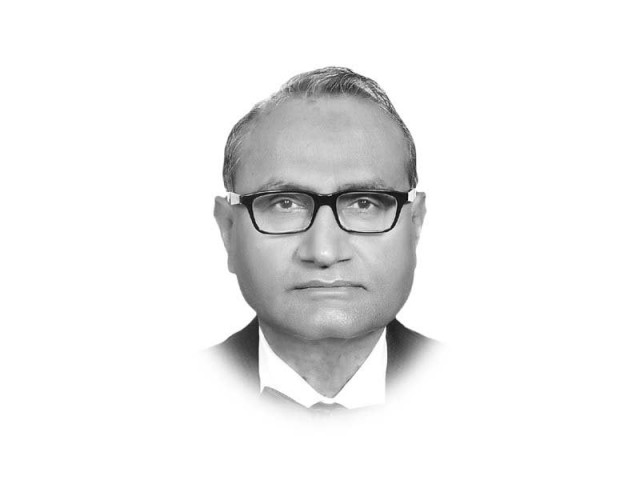Comedy of errors
Yet again the stage is set for the comedy of errors associated with our political transitions

The writer is a senior economist and author. He can be contacted at pervez.tahir@tribune.com.pk
It only takes a few numbers to sum up the “excellence” of finance and revenue bureaucracies. Fiscal deficit for 2017-18 was budgeted at 4.1 per cent of GDP, with a revenue surplus of 2.2 per cent. Instead of restricting development budget to this surplus plus prudent borrowing, it was pitched at 6.6 per cent of GDP. In the very first quarter, the surplus disappeared and borrowing for current spending resumed. By the third quarter, fiscal deficit was 4.3 per cent, higher than the target for the whole year. The revised fiscal deficit for the whole year is 5.5 per cent. Once the full impact of provincial deficits and circular debt is reflected and the FBR overestimation discounted, the deficit is likely to approach 7 per cent. With a trade deficit of $28 billion, the current account deficit stood at 5.5 per cent of GDP for 11 months. Trade data for 12 months adds another $10 billion to the trade deficit. This is too much even for an increasing inflow of remittances to cover. Current account deficit may thus be the identical twin of fiscal deficit. The tax amnesty scheme was expected to be a shot in the arm. However, the bureaucratic procrastination did not allow the creation of a climate of confidence for the desired outcome.
Limited by their mandate, the caretakers could only let the rupee take a hit. The party showing the confidence of being the next government has only lamented the fall of the rupee. There is no knowing what alternative it has on offer. Will it, like its two predecessors, rush to Angelo the goldsmith to bolster the depleting foreign exchange reserves? The coverage now is for less than two months’ imports. Angelo the goldsmith will be more than happy to see a declining rupee. It will, however, also place strict limits on public spending, which effectively means development spending. Tax increase, not necessarily reform, will be another condition. Together with interest rate hike, private spending on consumption as well as investment will be contained. In return, Angelo the goldsmith will supply foreign exchange to meet external liabilities. The international lender of the last resort will thus seek to restore stability.
Lower spending and investment will most likely slow down economic growth. In the latest monetary policy statement, the State Bank forecasts lower growth in the current year than the previous year. The election promises being made to deliver better public services require a lot more public spending than at present. Millions of jobs to accommodate the youth bulge cannot be created without a GDP growth of 7 to 8 per cent. Inflation, as a result of the contractionary measures, may not be as high as it would otherwise be, though the oil price surges could rock the boat at any time. Gains of price stability are far less certain than the losses in the momentum of growth.
This comedy of errors is funny no more. The winning party ought to come out with an indigenous economic agenda to keep growth in and the IMF out. Strict control of imports for consumption through nontariff barriers, effective energy conservation, freeing exports from unending encumbrances, cutting federal government to its 18th amendment size, expansion of tax base on a war footing and fiscally-empowered local governance should be high on this agenda.
Published in The Express Tribune, July 20th, 2018.
Like Opinion & Editorial on Facebook, follow @ETOpEd on Twitter to receive all updates on all our daily pieces.















COMMENTS
Comments are moderated and generally will be posted if they are on-topic and not abusive.
For more information, please see our Comments FAQ